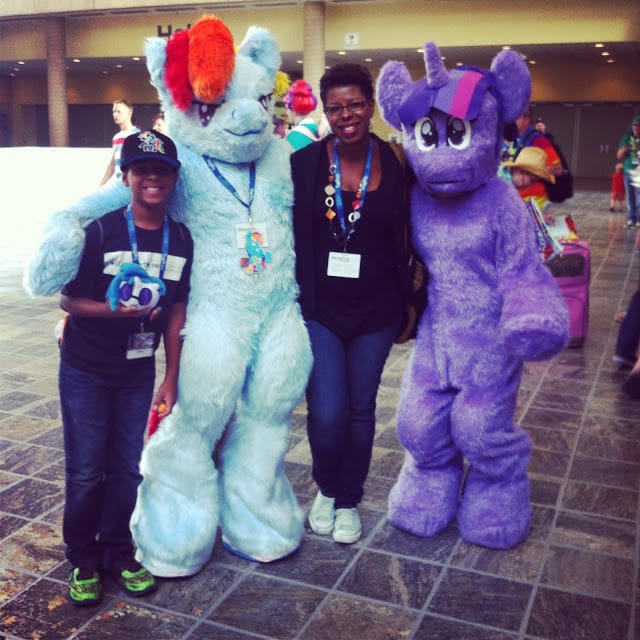Would You Rather? The Nature and Reality of Choice
“Would you rather?” The classic thought experiment most recently went viral when Tik Tok interviewers polled various women. “Would you rather be trapped in the woods with a man or a bear?” Many women “surprisingly” chose the bear. It sparked discussion and outrage and controversy and all the other stuff that accompanies social media. “Would you rather” long predates social media, though. I remember playing the “would you rather” game in high school, and I’m in my mid-thirties.
The Game
How does the game/though experiment work? “Would you rather?” presents its participants with two (and only two) hypothetical versions of reality to choose from. The two options are usually unpleasant (although not always), and they can range anywhere from gruesome and stomach-churning to hilarious or even heartbreaking. “Would you rather be eaten by sharks or thrown into an active volcano?” “Would you rather drink expired milk or eat rotten fruit?” “Would you rather die today but experience everything or live forever but experience nothing?” “Pick you poison” (so to speak).
The “False Dichotomy”
“Would you rather?” implements one of the most common fallacies in formal logic- the “false dichotomy.” A “false dichotomy” is a binary premise that erroneously limits its available options, and, if you pay close attention, you can spot versions of it everywhere. In politics- “Either you love Joe Biden, or you worship Donald Trump.” In relationships- “If you don’t take me out to my favorite restaurant then we’re getting divorced.” In science/religion- “Either nothing happens after we die, or we are reunited with the Biblical God in Heaven.” And so on and so forth.
“False” is of course the key word, and it is what makes “Would you rather?” such an entertaining diversion. Its two options are also so improbable or outlandish that no one would ever really worry about facing them in real life (at least in opposition to one another). “No one,” that is, accustomed to a specific way of thinking. If a person adheres to an absolutist, “black-and-white” mindset, though, it’s a completely different story. In those instances, “Would you rather” is an insufferable reality…not an amusing hypothetical.
Real Dilemmas
On that fateful September morning several decades ago, many people faced a very real dichotomy: jump from the towers or face the flames engulfing them. Every parent protecting their children knows exactly which of the two options they’d select if they encountered a vicious predator or a bus barreling down on them. They’d die and their offspring would survive. Sophie’s Choice (1982) with Meryl Streep presented an even more haunting dilemma: a mother in a concentration camp who must select between her children which one will live.
Most real dichotomies, though, are either extremely rare or not-that-serious. For instance, if the only two options left at the ice cream shop are chocolate and vanilla, that’s a real dichotomy, but it certainly isn’t something Meryl Streep is winning an Oscar for.
The choice between working out and eating well or suffering serious health complications is also technically a real dichotomy but not in the strictest sense of the term. It’s a gradual dichotomy…. a spectrum if you will. It takes a lot of exercise to become super fit just as it takes a lot of junk food and sedentariness to develop heart disease. This isn’t to say we shouldn’t take choices like these seriously. But in most cases, these choices don’t boil down to a single time and place. There’s room for error (so long as the error doesn’t perpetuate a bad habit). This is why psychologists label “black-and-white” thinking a cognitive distortion. It rarely maps onto reality.
Everything Seems Binary
Still, our society is drenched in false dichotomies, which, no doubt, explains why so many of us suffer from “black-and-white” thinking. Our elections only offer us two parties to choose from, and, for at least the past 10 years, many of us have voted along the lines of the “lesser of the two evils” (regardless of whom one considers “evil”). Other dichotomies include the “the sinner vs. the saint,” “the oppressor vs. the victim,” and “the enlightened intellectual vs. the morally inferior idiot.” All these pairings come with a great amount of nuance. None are as rigid as they may seem.
So, if nuance is such an apparent truth, why do we still cling to our black-and-white way of thinking? Because the potentially “false negative” far outweighs the “false dichotomy.” The age-old evolutionary scenario still holds true: you are walking along, and you see a squiggly line in the grass. You think it’s a snake, but it isn’t (“false positive”). No danger. You think it’s not a snake, and you’re right, it isn’t (“true negative”). No danger. You think it’s a snake and it is (“true positive”). You run away. You think it’s not a snake, but it is (“false negative”). It bites you and you die.
This matrix of possibilities isn’t something we can easily shake off, as much as we may want to, and when the stakes are high enough (or even just seem high enough), Darwinian survival demands we frame it as “Either/Or.” Think Blaise Pascal’s “Wager,” but for our world as much as any potential world beyond the grave.
Going With the Tide
Therefore, the answer to our “black-and-white” cognitive impulse isn’t to suppress or ignore it. The tidal force that the “false dichotomy” river carries will demolish any dam we put in its way. Instead, the answer is to join the current in its direction. Take the “absolute” outcomes to their ultimate extremes. “If I don’t get this job, I’ll immediately lose all my savings and collapse dead in a gutter somewhere.” Okay…maybe that will happen. “If I do get this job, the universe will conspire against me. I’ll walk outside and get hit by a bus.” Yeah…you’re right. That is certainly going to happen. Take this exercise far enough and it becomes silly and cartoonish. The “false dichotomy” loses its strength. It eventually just becomes a frivolous game…one that we call “Would You Rather?”
Discover more from DG Speaks
Subscribe to get the latest posts sent to your email.




